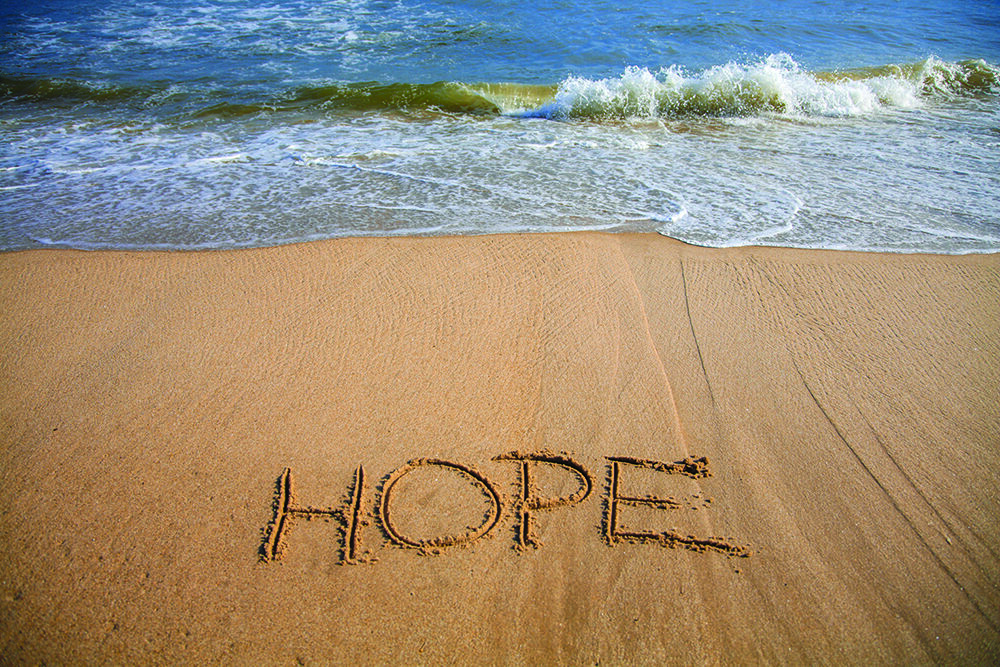 Sting wrote in a song that came out a few years ago now,
Sting wrote in a song that came out a few years ago now,
You could say I lost my faith in science and progress
You could say I lost my belief in the holy Church
You could say I lost my sense of direction
It is a very prescient song, painting the picture of a man who no longer has hope that the world is getting better, that his government is competent, that the church, the bedrock of western society for the last 1000 years has anything to offer today, and doesn’t even believe that he knows where he is going anymore. It sounds a lot like many people today, especially in a post-pandemic world where divisions seem deeper than ever, our politicians seemed as lost as we were, churches were divided about how to conduct themselves, and “trusting the science” seems like a slogan rather than something a person can actually do.
What do you do when you lose faith? What do you do when the faith you are losing isn’t just a religious question, but much broader than that? Where do you find hope?
Philosophers have walked those paths many times before, because our times are not the first in history to face what we have faced. There have been eras where religion has struggled to articulate the hope that it can bring, when disease has decimated regions and nations, and even sometimes the world, when governments sink into corruption or indolence. And philosophers have wrestled through how to find meaning in such times.
Some have become nihilistic or hedonistic in response, turning their thoughts inward, and focusing only on themselves. Others have built themselves back up on utilitarianism, where instead of subscribing to systems, they took the systems apart and selected only what “worked” for them. There are probably many more approaches out there, but you aren’t looking for a thorough summary of the entire discipline in a Padre’s weekly column, so I’ll save you the eye strain.
I have been down this road myself – it may or may not come as a shock to you, but chaplains are human beings too, and we were not born into our trade, perfectly suited and prepared by genetics and careful nurturing to be rocks of virtue and holiness. If we ever were. No, my own road to today was fraught with doubt as much as anyone’s, and I went through most of my formative years without certainty in anything, transcendent or mundane.
But I know I have one thing: hope. I have not lost faith on my road to today. I have gained it. How, you may ask?
It starts with love. Because love is one thing that simply can’t be explained, yet it seems to be the one thing that makes everything better. It makes relationships better (yes, you can have relationships without love, but it’s WAAY better with it!), it makes work better. It makes science better (if you love both those you study, and love the people who stand to be affected by what you study, that is pretty much the definition of ethics), it makes governing better.
Love is what gives me hope in people. Love is what gives me hope in life. Without life, there is no love. Without love, there is a LOT less life (can’t say no life, because last I checked, reproduction is possible without love, but would be a lot less frequent and successful without it). Yes, people let you down, people make mistakes, but cultivating love minimizes both. Love deserves centre stage in your life, and in mine. It is perhaps one of the greatest tragedies that our society has reduced love to eros – sexual love, and reads all forms of care in a Neo-Freudian manner now. Love deserves no such reading. Love has no such boundary.
Love does win, when understood in its broadest sense. That’s why when disaster strikes, people care for one another in ways that we are often shocked by… but shouldn’t be. Because love is embedded deeper than we think in every one of us.
Cultivate love in your life, and you will find hope again. Seek out opportunities to love, and you will be loved in return. Don’t allow culture’s view of love to limit your hope. There are people all around you: family, friends, co-workers, neighbours.
“Now three things remain: faith, hope and love. But the greatest of these is love.” – St. Paul (1 Corinthians 13:13 NIV)








